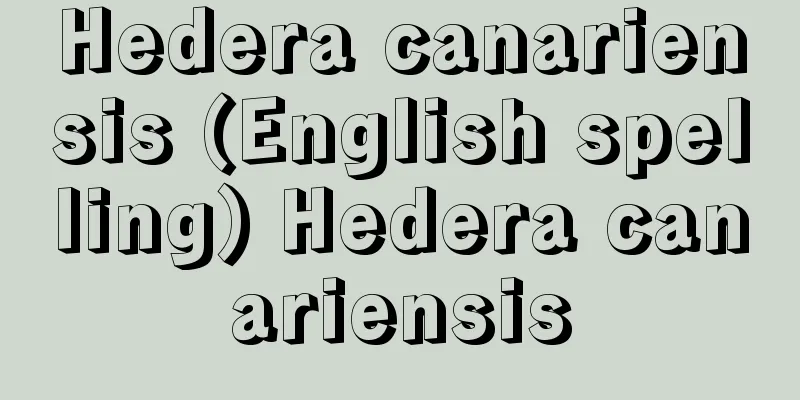Amewakahiko

|
A god who appears in the Kojiki and Nihon Shoki. In the Kojiki, he is called Amewakahiko. When the gods of Takamagahara tried to pacify the earthly world before the descent of the heavenly grandson, and after Amewakahiko's mission to earth ended in failure, Amewakahiko descended from heaven to pacify the earth. However, in an attempt to become the king of the earth himself, he betrayed Takamagahara and shot dead a messenger, a pheasant, who came to question him with a bow and arrow. The arrow reached the heavenly world and was hit by an arrow thrown back from there, killing him. At his funeral, his friend Ajisukitakahikone no Kami came to visit, and because he looked so similar, he was mistaken for Amewakahiko who had come back to life. The myth surrounding this god has two overlapping elements. First of all, the story of a man who is to become king of the earthly world aiming an arrow at the heavens and being killed by the arrow that returns is said to be a type of tale about an arrogant king, as typified by the Mesopotamian folk tale "Nimrod's Arrow." Also, the story of an exact likeness appearing after death is thought to be a variation of a story that was originally about "death and resurrection." Given that the death of this god is said in the "Nihon Shoki" to have occurred at the site of a ritual related to the death and resurrection of the grain god called Niiname, the story of Amewakahiko's death and the visit of Ajisukitakahikone is thought to be based on the myth of the death and resurrection of the grain god. It is likely that Amewakahiko was originally a god who personified the life force of grain, and the "Nimrod's Arrow" type of story was fused with this series of myths. <References> Kaneseki Tsuyoshi, "The Wooden Horse and the Stone Cow," Matsumae Ken, "Japanese Mythology and Ancient Life." (Noritaka Kanda) Source: Asahi Japanese Historical Biography: Asahi Shimbun Publications Inc. About Asahi Japanese Historical Biography |
|
『古事記』『日本書紀』にみえる神。『古事記』では天若日子。高天原の神々が天孫の降下に先立って地上世界を平定しておこうとしたときのこと,天穂日命の地上への派遣が失敗に終わったあとを受けて,地上を平定すべく天降る。しかし自分が地上の王となろうとして,高天原を裏切り,これを糾問しにきた使いの雉を弓矢で射殺する。この矢が天上世界まで届き,そこから投げ返された矢に当たって落命する。その葬儀のとき,訪ねてきた友人の味耜高彦根神(アジスキタカヒコネノカミ)があまりによく似ていたため,天稚彦が生き返ったものと勘違いされる。この神をめぐる神話には,ふたつの要素が重なり合っている。まず,地上世界の王たるべき者が,天へ矢を向けて,返ってきた矢で落命するというのは,メソポタミアの民間説話「ニムロッドの矢」に代表される,奢れる王の説話の一類型といわれる。また死んだあとにそっくり似た者が出現するというのは,もとは「死と復活」の話だったものの変形と考えられる。この神の死が『日本書紀』では,新嘗という穀物の神の死と復活にかかわる儀礼の場で起こったとされていることからすれば,天稚彦の死とアジスキタカヒコネ来訪の話は,穀物神の死と復活の神話がベースとなっていると考えられる。おそらく天稚彦は元来穀物の生命力を神格化した神で,その一連の神話に「ニムロッドの矢」型の話が融合したのであろう。<参考文献>金関丈夫『木馬と石牛』,松前健『日本神話と古代生活』
(神田典城) 出典 朝日日本歴史人物事典:(株)朝日新聞出版朝日日本歴史人物事典について 情報 |
>>: Amersfoort (English spelling)
Recommend
Toyosato
This is the former town area in the southern part ...
Copper vein - Domyaku
Year of death: 1801.7.12 Year of birth: 1752 A wri...
Basilica of the Sacre-Coeur (English name)
This pilgrimage church stands on the hill of Montm...
Trump, Donald
Born June 14, 1946 in New York, New York. American...
Border Leicester
…The most common varieties are Lincoln (native to...
Zweers, B.
… In the 17th and 18th centuries, citizen perform...
《Otsuma Hachirobei》 - Otsuma Hachirobei
...Sewamono (domestic drama). Also called "T...
decisions
…As the embryo develops, the potential for the fo...
Albanian - Albanian (English spelling)
They are said to be descendants of the Illyrians, ...
Southern Dynasties Tombs - Nancho Ryobo (English spelling)
From the Eastern Jin to the Chen dynasty (317-589)...
Leucosia anatum (English spelling) Leucosia anatum
… [Takeda Masatomo]. … *Some of the terminology t...
Reverse delivery
〘 noun 〙① (━suru) to send back. ※Inside the Glass ...
barshchina
…serfs were considered the property of the landlo...
Tourist attractions - Kankochi
〘 noun 〙 A place that is visited by many people fo...
Kanto Onkuji - Kanto Onkuji
Although it is sometimes used synonymously with t...



![Tsukidate [town] - Tsukidate](/upload/images/67cc3b1a9cde1.webp)





